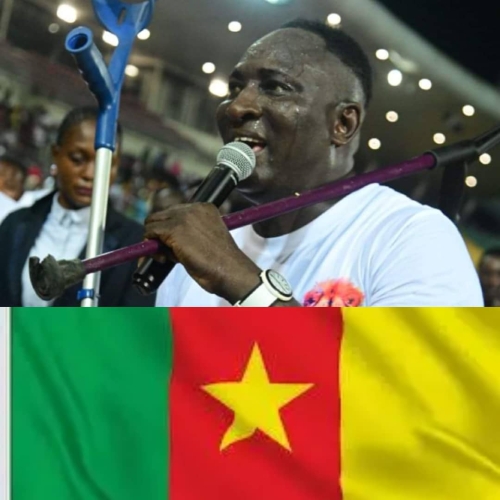News And PoliticsCommunications And EntertainmentSports And FitnessHealth And LifestyleOthersGeneralWorldnewsBusiness And MoneyNigerianewsRelationship And MarriageStories And PoemsArts And EducationScience And TechnologyCelebrityEntertainmentMotivationalsReligion And PrinciplesNewsFood And KitchenHealthPersonal Care And BeautySportsBusinessFamily And HolidaysStoriesIT And Computer ScienceRelationshipsLawLifestyleComedyReligionLifetipsEducationMotivationAgriculturePoliticsAnnouncementUSMLE And MedicalsMoneyEngineeringPoemsSocial SciencesHistoryFoodGive AidBeautyMarriageQuestions And AnswersHobbies And HandiworksVehicles And MobilityTechnologyFamilyPrinciplesNatureQuotesFashionAdvertisementChildrenKitchenGive HelpArtsWomenSpiritualityQuestions AnsweredAnimalsHerbal MedicineSciencePersonal CareFitnessTravelSecurityOpinionMedicineHome RemedyMenReviewsHobbiesGiveawayHolidaysUsmleVehiclesHandiworksHalloweenQ&A
Top Recent
Loading...
You are not following any account(s)
profile/5683FB_IMG_16533107021641748.jpg
News_Naija

What Nigeria Can Learn From Chinas Economic Transformation
~3.6 mins read
China has transformed from an isolated, agrarian economy into the world’s second-largest economic powerhouse in just over four decades. What was once a country grappling with poverty, underdevelopment, and political instability is now a hub for infrastructure, innovation, and global trade. This transformation was not accidental—it resulted from deliberate policies, long-term vision, and strategic execution. As Nigeria, Africa’s most populous nation and one of its largest economies, struggles with underdevelopment, unemployment, and economic dependency, a critical question arises: Can Nigeria learn from China’s blueprint and chart a similar course of transformation? Exploring the key drivers behind China’s economic success—from industrial policy and foreign direct investment to education and innovation—and examining which strategies are adaptable to Nigeria’s unique context. It is not about copying and pasting a model but thoughtful adaptation, bold leadership, and a shared national vision. Nigeria can learn a treasure trove of lessons from the compelling story of a nation that understands the delicate balance between progress and preservation. “If you know your history, you will know where you are coming from.” Perhaps you would also know where you are going. But then, knowing your history is not enough. You must preserve and build on it. China deeply embeds its culture in every aspect of life. From food to architecture, from language to commerce, they carry their heritage with pride. Chinese culture highly regards heritage and is firmly committed to preserving history with a seamless blend of traditional and modern architecture. We must understand that our past is the foundation on which we build our future. Language is power. Language is unity. In China, everyone speaks Mandarin—not only as a means of communication but also as a declaration of identity. With Mandarin as the national language, the country has been able to bridge regional divides and create a sense of national unity. I believe the absence of a “local” common national language keeps Nigeria fragmented. A more unified linguistic approach can help us strengthen national cohesion. Walk into any Chinese store, and you will find products proudly made in China. There is a national consciousness to support homegrown businesses. Government policies favour local industries, ensuring they thrive before foreign brands are even considered. If we do not build and protect our own, no one else will. An average vendor in China accepts payments via Alipay or WeChat. The apps can even analyse your spending and show which sectors are taking more money than the others. China’s infrastructure tells a story of intentional leadership. Payment platforms, technology, roads, bridges, trains, and power supply are not luxuries there—they are fundamental rights. China has created an ecosystem that encourages innovation and entrepreneurship, and the government’s investments in its people ensure that a lack of infrastructure does not hinder productivity. China did not become the world’s manufacturing hub overnight. It took decades of meticulous planning, investment in technology, and a deep understanding of global market trends. Nigeria has vast human and natural resources, but it must think beyond quick wins. We must start playing the long-term game—investing in industries that can position us as global leaders in specific sectors. China’s success is largely built on its infrastructure—efficient transportation, stable electricity, and modern digital networks. These systems enable businesses to thrive and make daily life more convenient. Nigeria must prioritise infrastructure development in urban areas and across the country, ensuring accessibility and efficiency in commerce, communication, and mobility. One of China’s most fascinating strategies is building viable internal alternatives before restricting foreign platforms. They did not just ban Google; they had Baidu. They did not just block WhatsApp; they had WeChat. They did not just reject foreign e-commerce platforms; they had Alibaba. We must create, then compete—not the other way around. China understands the power of partnerships. The government collaborates with businesses, businesses collaborate among themselves, and regions within China collaborate to drive national growth. We must embrace the mindset that no sector thrives in isolation. From private enterprises to government initiatives, from north to south, collaboration should be the new normal. Perhaps the most remarkable thing about China is its discipline—discipline in governance, policy execution, and societal structure. We have some of the brightest minds in the world, but talent without discipline is wasted potential. It is not enough to have plans; we must follow through with ruthless efficiency. China is not perfect, and neither is Nigeria. But if we are to move forward, we must be willing to learn from those who have successfully walked the path of development. Celebrating our culture, preserving our heritage, prioritising collaborations, supporting indigenous businesses, uniting through language, and demanding more from leadership—these are not just lessons we can learn from developed countries; they are mandates. Nigeria is rich, powerful, and full of promise. But a promise alone does not build nations—strategy, execution, and a deep sense of identity do. We must invest in our human capital and build a workforce that can drive the nation’s growth. Progress is not a zero-sum game. China has an ageing population, but our young population is one of our greatest assets. We must equip them with the skills and knowledge required to compete in the 21st century. • Olaotan Fawehinmi writes from Lagos
Read more stories like this on punchng.com
profile/5377instablog.png.webp
Instablog9ja

Nigerian Man Goes Viral For Earning Three Masters Degrees From Three Different Universities, Claiming He Did It Out Of Boredom
~0.4 mins read
A Nigerian man has gone viral for earning three Master’s degrees from three different universities, claiming he did it out of ‘boredom’.
The man has the 1st Frame MSc Business Management (Industrial Relations & HRM) Covenant University, the 2nd Frame MBA (General Management) University of New Brunswick and the 3rd Frame MSc Business Management (Strategy & Organization) Queens University.
He had distinction in all the three masters degree and his full of gratitude as he pursued his PhD.
profile/8302images3.jpeg.webp
Gistlegit

Prophet Jeremiah's World Tour Draw Record-Breaking Crowd In Cameroon With Grand Arrival
~1.3 mins read

The Arrival of Billionaire Prophet Jeremiah Fufeyin in Cameroon: A Nation Ablaze with Hope
Cameroon witnessed a moment of divine significance as Billionaire Prophet Jeremiah Fufeyin touched down to launch his world tour miracle revival crusade. His arrival sparked a wave of excitement and faith across the nation, as thousands of believers gathered at the airport to welcome him with songs of praise and heartfelt prayers. This historic visit is set to ignite a season of miracles and transformation, uniting people in hope and spiritual renewal.
Prophet Jeremiah’s arrival was nothing short of grand. Greeted by jubilant crowds and dignitaries, the man known for his generosity and humility stepped out of his private jet, offering blessings to all. His presence signifies the beginning of a nationwide revival, with the National Stadium prepared to host countless attendees eager to witness life-changing miracles and hear his powerful message of faith.
*Watch Video:*
Beyond the crusade, Prophet Jeremiah’s visit highlights his unwavering commitment to humanity. His philanthropic initiatives aim to uplift underprivileged communities through the distribution of food, educational resources, and financial aid. These acts of compassion embody his belief in faith paired with action, bringing tangible hope to those in need.
As the revival begins, Cameroon stands united, ready for an era of spiritual awakening. Social media buzzes with anticipation, while prayer chains and fasting sessions amplify the atmosphere of expectation. Prophet Jeremiah Fufeyin’s journey to Cameroon is more than an event; it is a divine movement destined to leave a lasting legacy on the hearts of millions.
dataDp/1032.jpeg
Worldnews

Albanias Ruling Socialists Secure Majority In Parliamentary Vote
~1.8 mins read
A near-complete ballot count shows the Socialist Party won 52 percent of the votes or 82 of 140 parliamentary seats. Albania’s ruling Socialist Party has won the country’s parliamentary elections, according to a near-complete vote count, securing Prime Minister Edi Rama an unprecedented fourth term in office. With about 96 percent of ballots counted, the official results on Tuesday showed the Socialist Party got 82 seats in the 140-seat parliament with 52 percent of the votes. The opposition centre-right Democratic Party secured 51 seats with 34 percent of votes. Three other small parties will take the rest of the seats. The threshold for entry into the assembly in Albania is one percent for parties and five percent for party alliances. The full results are expected later on Tuesday. If confirmed, the results would be an increase from the last election, where Rama’s party won 49 percent of the vote, and would give him a majority to form a government. The Central Election Commission, the electoral executive, has said that by law, the final results come out 48 hours after the vote ends. The results may be delayed following a request of the opposition not to consider about 53,000 ballots mailed from the diaspora in neighbouring Greece, claiming they are manipulated. For the first time, those in the diaspora could cast postal votes. About 195,000 mailed in their votes. Eligible voters in Albania and abroad voted to elect 140 lawmakers for a four-year mandate in the Balkan nation. Because of mass emigration, the country of 2.4 million people has a total of nearly 3.7 million eligible voters. Diaspora votes from Greece may move a number of seats in three or four areas in favour of the ruling party. The opposition claims they were manipulated by Socialist supporters. The postal company said it has confirmation signatures of all the voters in Greece. Rama, who has been in power since 2013, focused his campaign on working to gain membership in the European Union by 2030. Sali Berisha, the candidate of the conservative Democratic Party, argued that Albania still is not ready for the bloc’s membership. Some analysts were surprised by the strength of Rama’s success, expecting that a series of corruption scandals and the recent unrest in the country due to a crackdown on the opposition would affect his results. A joint international observation mission noted that despite being competitive and professionally managed, the election process so far was marked by the ruling party’s misuse of public resources, a confrontational and polarising tone, the two main political parties using divisive language, non-transparent financing, and unbalanced media coverage of smaller parties. Follow Al Jazeera English:...
Read this story on Aljazeera
Loading...
 News_Naija
News_Naija
 Instablog9ja
Instablog9ja
 Gistlegit
Gistlegit
 Worldnews
Worldnews